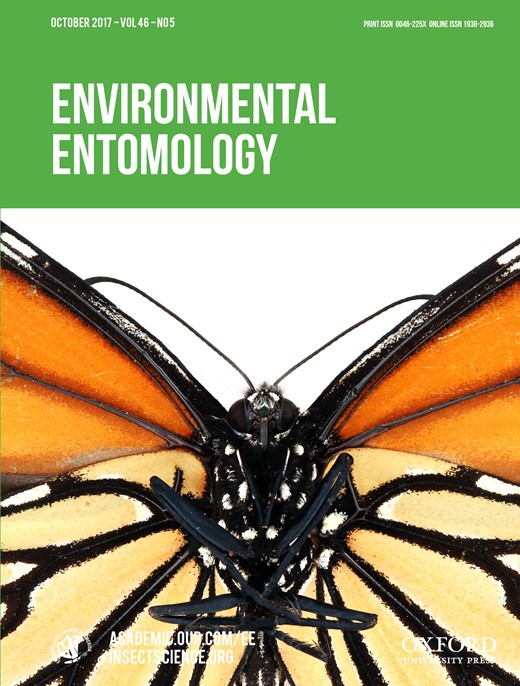-
Views
-
Cite
Cite
Steven Van Timmeren, Logan Horejsi, Shadi Larson, Katherine Spink, Philip Fanning, Rufus Isaacs, Diurnal Activity of Drosophila suzukii (Diptera: Drosophilidae) in Highbush Blueberry and Behavioral Response to Irrigation and Application of Insecticides, Environmental Entomology, Volume 46, Issue 5, October 2017, Pages 1106–1114, https://doi.org/10.1093/ee/nvx131
Close - Share Icon Share
Abstract
Spotted wing Drosophila, Drosophila suzukii Matsumura (Diptera: Drosophilidae), is an invasive vinegar fly that has become a primary direct pest of berry crops worldwide. We conducted 2 yr of behavioral studies in blueberry plantings to determine how fly activity varied throughout the day. Observations of diurnal activity of adult D. suzukii found the greatest activity in the morning hours between 0600 and 0800 hours, when the majority of flies were on the berries. Flies were also active in the evening mainly between 1800 and 2000 hours; however, this trend was more prominent in 2015, which had cooler and more humid evenings. Experiments examining the effect of irrigation on D. suzukii behavior showed that flies remained active during and after irrigation. The effect of insecticide treatments alone and in combination with irrigation revealed that treatment with spinosad had limited effects on the number of flies per bush, whereas spinetoram reduced the number flying and on the bushes in some cases. Zeta-cypermethrin caused longer and more consistent reduction in D. suzukii flying and on bushes. In all treatments, we observed surviving flies flying near and on treated bushes, indicating that these insecticides do not completely deter fly activity. Irrigation did not influence the effects of zeta-cypermethrin on fly behavior during daily observations up to 3 d after application. Our results highlight that the diurnal patterns of activity of D. suzukii on host plants are flexible and are relatively unaffected by irrigation or insecticide applications.





